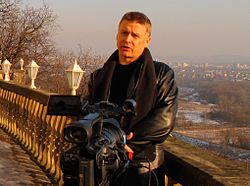
Stanisław Herman Lem was a Polish writer of novels, short stories and essays on various subjects, including philosophy, futurology, and literary criticism. Many of his science fiction stories are of satirical and humorous character. Lem's books have been translated into more than 50 languages and have sold more than 45 million copies. Worldwide, he is best known as the author of the 1961 novel Solaris. In 1976 Theodore Sturgeon wrote that Lem was the most widely read science fiction writer in the world.
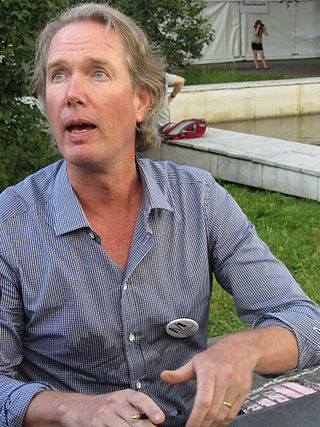
John Seabrook is an American writer.

Used colloquially as a noun or adjective, "highbrow" is synonymous with intellectual; as an adjective, it also means elite, and generally carries a connotation of high culture. The term, first recorded in 1875, draws its metonymy from the pseudoscience of phrenology, which teaches that people with large foreheads are more intelligent. The term is deeply connected to hierarchical racial theories from the 19th century. The German physician, physiologist, and anthropologist Johann Friedrich Blumenbach (1752–1840) argued "for human diversity alonglines of racial differences as evidenced by skulls shapes and measurements. [...] One metric of Blumenbachs classification was the line of the forehead, said to be higher among 'Caucasians' and lower among 'Mongolians' and 'Ethiopians' and this is the origin of the still common usage of 'highbrow' and 'lowbrow' ".
The term middlebrow describes middlebrow art, which is easily accessible art, usually popular literature, and middlebrow people who use the arts to acquire the social capital of "culture and class" and thus a good reputation. First used in the British satire magazine Punch in 1925, the term middlebrow is the intellectual, intermediary brow between the highbrow and the lowbrow forms of culture; the terms highbrow and lowbrow are borrowed from the pseudoscience of phrenology.
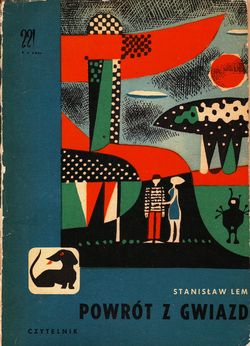
Return from the Stars is a science fiction novel by Polish author Stanisław Lem. Written in 1961, it is the story of a cosmonaut returning to his homeworld, Earth, after more than a century in Earth time, but just 10 years for him, finding it a completely different place, with many developments he dislikes. The novel touches the ideas of social alienation, culture shock and dystopia. It was first translated into English in 1980 by Barbara Marszal and Frank Simpson.
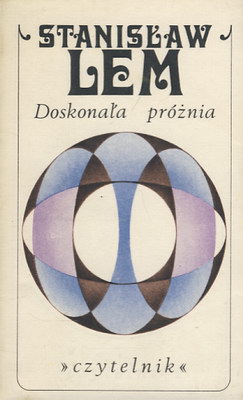
A Perfect Vacuum is a 1971 book by Polish author Stanisław Lem, the largest and best known collection of Stanisław Lem's fictitious criticism of nonexisting books. It was translated into English by Michael Kandel. Some of the reviews remind the reader of drafts of his science fiction novels, some read like philosophical pieces across scientific topics, from cosmology to the pervasiveness of computers, finally others satirize and parody everything from the nouveau roman to pornography, Ulysses, authorless writing, and Dostoevsky.

From Lowbrow to Nobrow is a book on literary culture written by Peter Swirski, professor of American literature and culture at the University of Missouri, St. Louis and Research Director at the Helsinki Collegium for Advanced Studies. Swirski is the author of twelve books of American literature and culture, Stanislaw Lem, and theory of knowledge.

Professor Tarantoga, an eccentric xenozoologist, traveller, and inventor, is a fictional character from science fiction works, mostly humorous, by Polish writer Stanislaw Lem.

Ars Americana, Ars Politica: Partisan Expression in Contemporary American Literature and Culture is a 2010 critical study by Peter Swirski.

Stanisław Lem's fictitious criticism of nonexistent books may be found in his following works: in three collections of faux reviews of fictional books: A Perfect Vacuum, Provocation, and Library of 21st Century translated as One Human Minute, and in Imaginary Magnitude, a collection of introductions to nonexistent books.
Simulated consciousness,synthetic consciousness, etc. is a theme of a number of works in science fiction. The theme is one step beyond the concept of the "brain in a vat"/"simulated reality" in that not only the perceived reality but the brain and its consciousness are simulations themselves.
Robert T. Tally Jr. is a professor of English at Texas State University. His research and teaching focuses on the relations among space, narrative, and representation, particularly in U.S. and comparative literature, and he is active in the emerging scholarly fields of geocriticism, literary geography, and the spatial humanities. Tally is the editor of "Geocriticism and Spatial Literary Studies," a Palgrave Macmillan book series established in 2013. The translator of Bertrand Westphal's Geocriticism: Real and Fictional Spaces and the editor of Geocritical Explorations, In addition to his numerous essays on literature, criticism, and theory, Tally has written books on Herman Melville, Edgar Allan Poe, Kurt Vonnegut, and J.R.R. Tolkien's The Hobbit, as well as a critical introduction to the work of literary critic and theorist Fredric Jameson.
The Man from Mars is a "first contact" science fiction novel by Polish writer Stanisław Lem, published in 1946. Lem's first science fiction work, its plot revolves around American scientists studying a creature - an alien - found in a crashed spaceship that originated from Mars.
Mad scientists and inventors appear in the fiction of Stanisław Lem in the memoirs of Lem's starfaring vagabond Ijon Tichy, collected in The Star Diaries and Memoirs of a Space Traveller, as well as in The Cyberiad. Most of Lem's mad scientist stories fit into the format of stories about unusual inventions, known since the 19th century, most of them are devoid of ironic tone characteristic of most of Ijon Tichy's stories and robots' fables, and they are literary frames for various Lem's theories.
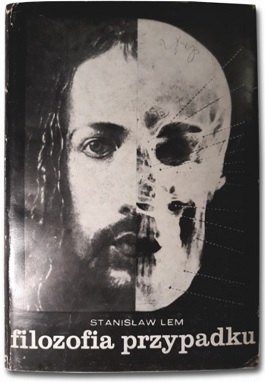
The Philosophy of Chance, with subtitle "Literature in the Light of Empiricism" is an essay by Polish author Stanisław Lem on the literary theory and the influence of literature on the modern culture. However, as literary critic Henryk Markiewicz noted, the subtitle is somewhat misleading: starting with Lem's take on literary theory, the essay turns into the "General Theory of Everything": of the Universe, evolution, and culture, based on a premise that chance, eventuality is the universal factor.

This bibliography of Stanisław Lem is a list of works about Stanisław Lem, a Polish science fiction writer and essayist.

Rozmowy ze Stanisławem Lemem is a book-length interview of Polish science fiction writer Stanisław Lem conducted by literary critic and historian Stanisław Bereś in 1981–1982 and published in book format in 1987. The second, more comprehensive edition was published in 2002 under the title Tako rzecze... Lem. The German-language, uncensored version, Also sprach Lem, was published earlier, in 1986.

A Stanislaw Lem Reader is a collection of writings by and about Polish science fiction writer Stanisław Lem, one of the world's most widely read science-fiction writers. The book comprises an introduction by Canadian literary scholar Peter Swirski, two interviews by Swirski with Lem, and Swirski's translation of Lem's essay, "30 Years Later".
